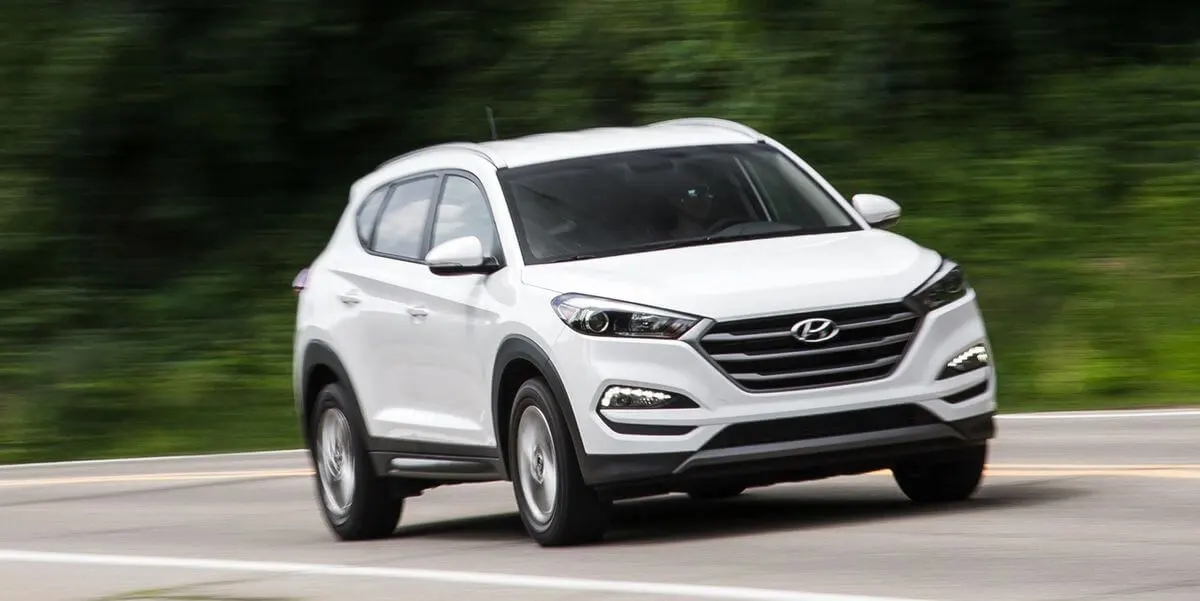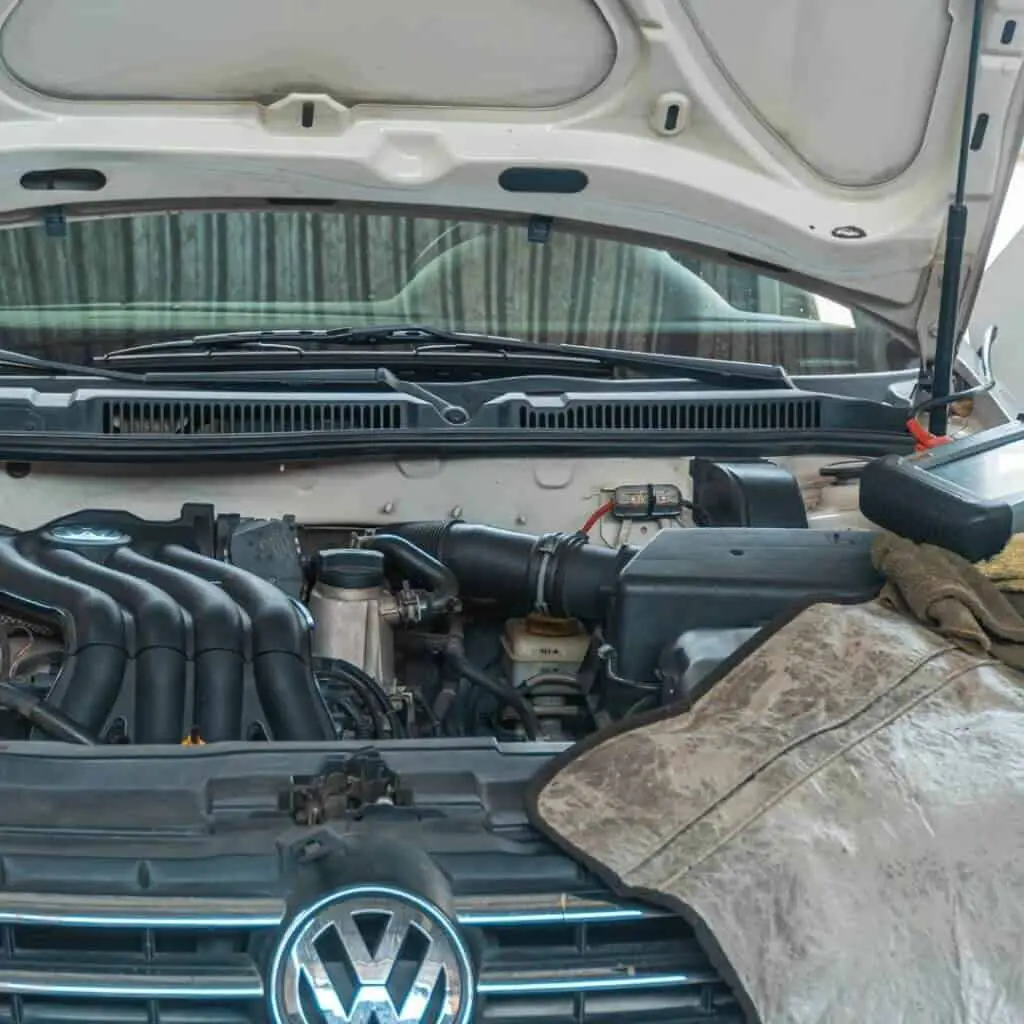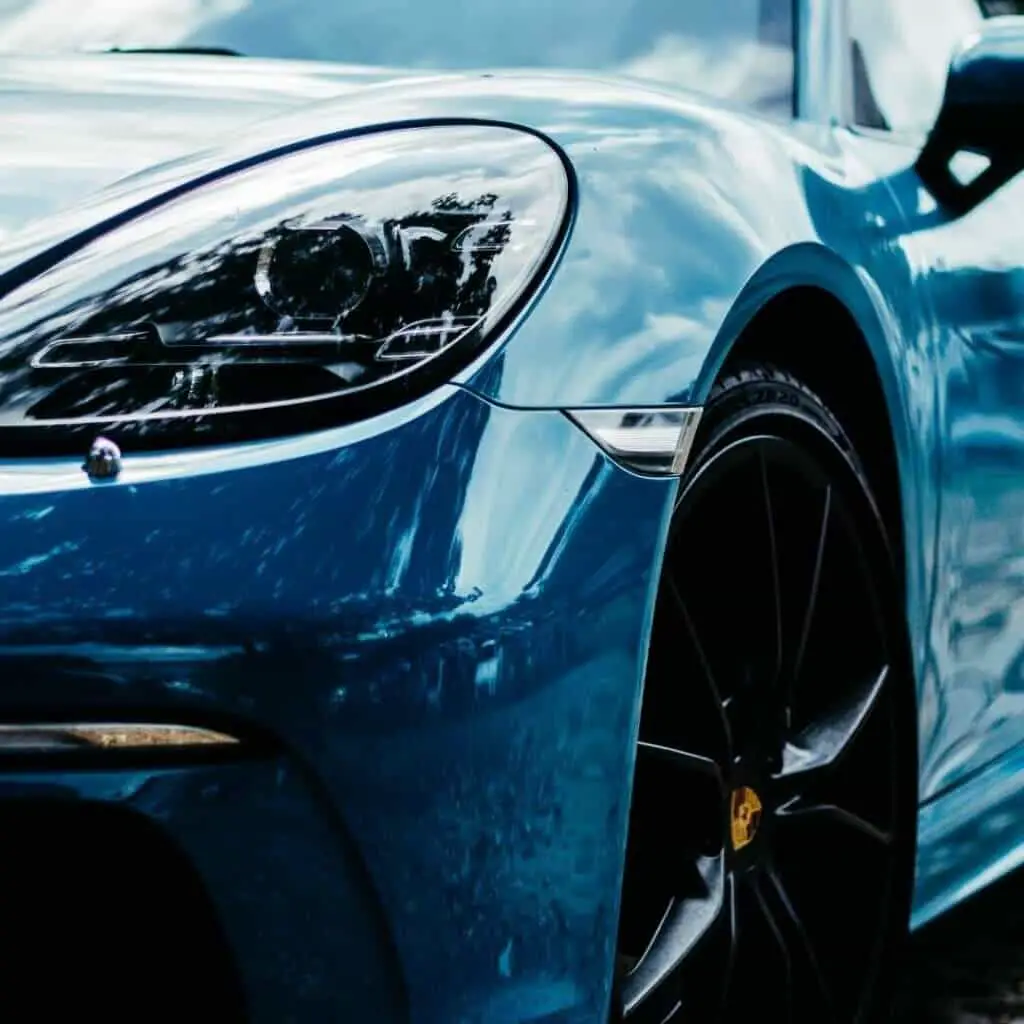Are you familiar with Hyundai Tucson problems and recalls?
Hyundai Tucson is a compact crossover SUV that has been in production since 2004. Through the years, this vehicle has received four generations, each of which changed certain aspects of the car. The initial design included a 5-door SUV body style and has remained consistent across the years.
The first generation of Hyundai Tucson offered 2.0 L Beta II I4 and 2.7 L Delta V6 petrol powertrains as well as 2.0 L CRDi I4 for diesel. The vehicle itself got a minor change in design and specifications in 2006.
The second generation started in 2009 and was in production until 2015, aside from Brazil where Hyundai Tucson was produced until 2021. It offered 1.6 L Gamma GDi I4, 2.0 L Nu GDi I4, 2.0 L Theta II MPi I4, and 2.4 L Theta II MPi I4 petrol powertrains. Diesel powertrain included 1.7 L and 2.0 L options.
The third generation saw little change in terms of power trains. Despite the generation lasting until 2021, it only saw the addition of a 2.4 L Theta II GDi I4 engine for petrol powertrain and a 1.6 L Smartsteam D 1.6 CRDi I4.
The fourth generation started production in 2020. It has brought in expanded options and an updated design. The vehicle has seen multiple releases in smaller markets after its initial production with a 2021 release in Vietnam and a 2022 release in the Philippines.
Hyundai Tucson Problems

Among the problems affecting the Hyundai Tucson, we can expect oil pump failures, fire hazards, transmission issues, and lack of sound from speakers. You can expect these issues on car with decent mileage on it.
- Fire danger
There have been 13,548 cars recalled over concerns of fire danger. These product safety recalls were initiated because manufacturing defects can cause the connecting rod to fail prematurely. This would lead to engine damage which allows engine oil to spill out.
Engine oil spilling out is troublesome by itself but the heat and friction within the car can soon cause it to catch fire. Engine fire is a huge safety risk that can damage the car and risk the life of the driver. [1]
- Oil pump problems
The 2023 Hyundai Tucson has been recalled alongside a few other models of that year such as Hyundai Palisade, Hyundai Sonata, Hyundai Kona, and Hyundai Elantra over concerns with the oil pump. The oil pump’s oil controller can malfunction, causing the entire controller to overheat. Should this happen, heat damage is imminent.
Even if the chances of actual fires are low, the heat damage will affect the electric oil pump circuit board, connector, and wiring harness. Damaging them after prolonged exposure and causing additional problems with the vehicle. Smoke is one of the earliest warning signs of this problem occurring. [2]
- Transmission problems
One of the earliest appearing problems is transmission problems. These issues can occur even at very low mileage and seem to be most common among Hyundai Tucson owners.
Transmission problems include poor acceleration, jerky gear shifts, and inconsistent starts. Though the problem is most notable in the 2016 and 2017 models, to the point there was a recall issued for the two years, any Hyundai Tucson can experience it. Keep an eye out on your transmission’s behavior to keep safe. [3]
- No sound from the speakers
The Hyundai Tucson has a problem with speaker systems that can occur no matter the mileage of the vehicle. Though it’s far from the most damaging malfunction in our vehicle, it is still a cause for concern.
No matter whether you are using the radio, CD player, or even the navigation system the vehicle will not produce sound. The sound could even abruptly cut without any warning, which can be particularly sudden when using navigation systems. [4]
Solutions to Hyundai Tucson Problems
Thankfully, the sound problems can often be addressed without even going to the mechanic’s shop. With the cause of the issue being a software glitch, we can resolve it with a hard reset. The way to do a hard reset is to disconnect the negative battery terminal in the SUV. Wait about 15 minutes and reconnect the terminal. This should reset the software and resolve the issue.
Transmission problems could occur separately from the recall-related malfunction. If you are experiencing transmission issues with your Hyundai Tucson make sure to check the transmission fluid. The problem could stem from a lack of transmission fluid rather than greater problems with the vehicle.
Oil spillage can also be caught early by checking the oil levels in the car. If they drop quickly or drain even when your car isn’t being driven, there may be an internal oil leak that you aren’t aware of.
Though do keep in mind that minor increases in oil consumption are fine, it’s only disproportionate use that’s worrying. To combat those slightly higher oil consumption situations, simply adjust how often the oil is refilled.
Related: Hyundai Elantra 2013 Problems
Hyundai Tucson problems
The usual solutions like warranty and making use of recalls also work as a way to cut down costs. Often enough, the most common issues are covered by specific extensions to the warranty or with indefinite recalls being issued. Sometimes, the use of warranty and recalls can even erase any cost from the repairs.
Related: Hyundai ix35 Problems
Conclusion
Hyundai Tucson is a good SUV with a few notable problems. Though this product line may still suffer from said issues, the solutions are plentiful.
This makes the Hyundai Tucson maintenance far cheaper than one would expect, leading to an ample number of chances to resolve problems before they heavily affect us.
As always, keep an eye out for potential recalls that could lessen the cost of repairing some of the issues while doing regular maintenance to distinguish when any of them will crop up.
Read Next: Dacia Duster Problems




